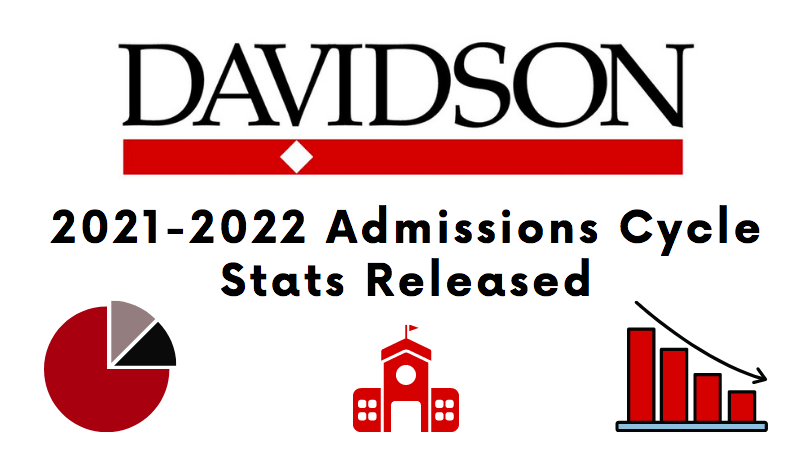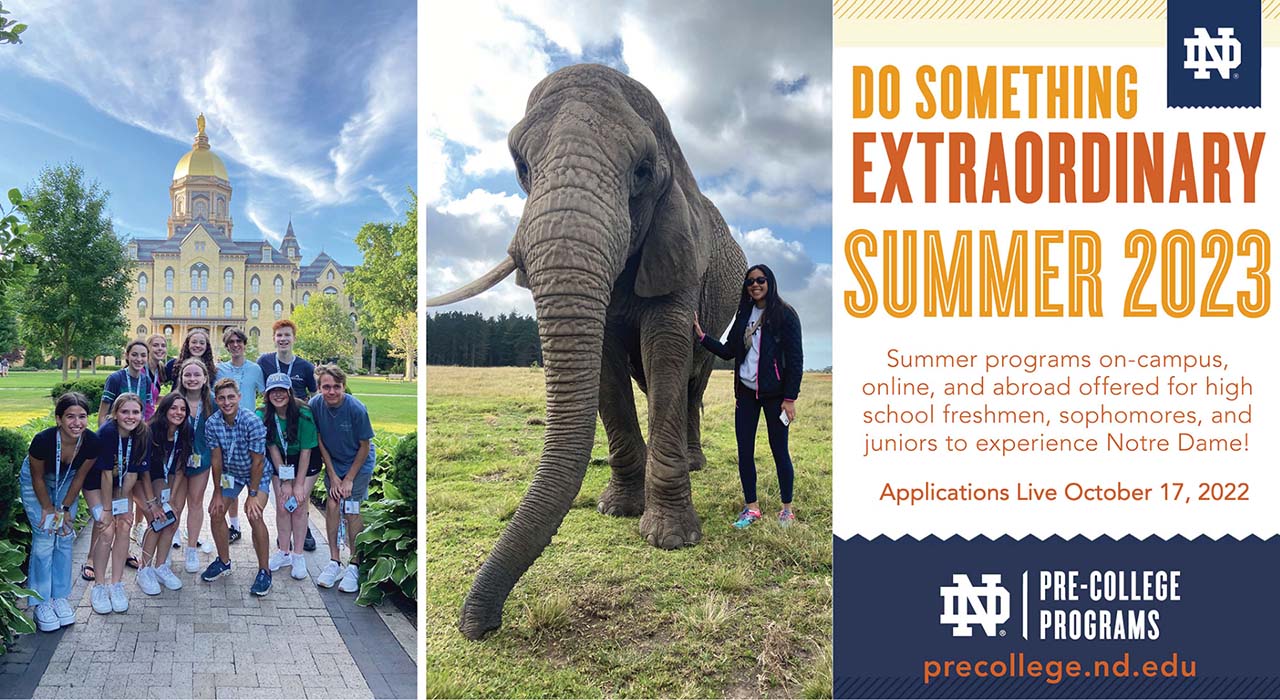 Applications for Summer 2023 programming on University of Notre Dame’s campus, online, and abroad are now live – even though it’s only October 2022!
Applications for Summer 2023 programming on University of Notre Dame’s campus, online, and abroad are now live – even though it’s only October 2022!
High school freshmen, sophomores, and juniors are eligible to apply for these programs, which introduce participants to college life, give students a chance to earn college credit, and provide Notre Dame a valuable revenue stream. With that said, financial aid and grants are also available.
The selection of programs is quite impressive, and now that the shadow of the pandemic has lifted, I encourage students who are interested to take a serious look at Notre Dame’s impressive international offerings in Italy, South Africa, Ireland, and the United Kingdom. Yet, the Indiana-based and online programming offerings are intriguing as well since they seem to be taught by Notre Dame faculty. The most important consideration of students making summer plans is to engage in challenging opportunities in which they have real interest. Sometimes that interest is new and can’t be explored during the school year. Other times that interest is ongoing and the opportunity represents a new way to pursue it relative to the way the student has pursued it so far. In either case, the student will get more out of the experience if he or she is truly invested in the content the program is going to explore, and Notre Dame certainly provides a lot of content that would be interesting to a lot of students.
Related: How to Avoid Bad-Pre-College Programs
Often the most selective summer programs fill up by December of January; therefore, if certain summer programs with Notre Dame or other universities are of interest to you, remember the oft-repeated maxim, “the early bird gets the worm,” and don’t wait to apply tomorrow – do it today. Good luck.

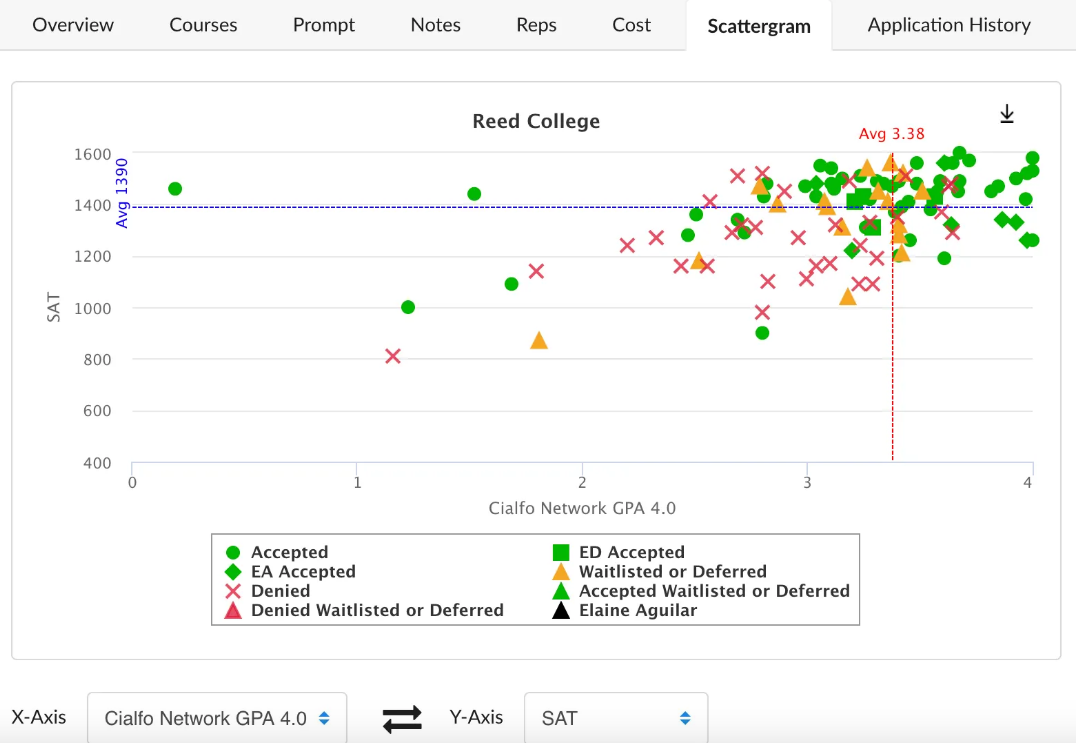 The typical student seeing the first of the two scattergrams above assumes, if he or she has a 3.6 GPA and an SAT score of 1860 he or she is definitely going to get into University of Maryland College Park. Most of the rest of students with that combination of grades and scores would assume, after seeing the above scattergram, that Maryland is at least a huge safety college for them. After all, all students from this high school in the past few years who land in that GPA/score range got into Maryland, as illustrated by all of those green squares.
The typical student seeing the first of the two scattergrams above assumes, if he or she has a 3.6 GPA and an SAT score of 1860 he or she is definitely going to get into University of Maryland College Park. Most of the rest of students with that combination of grades and scores would assume, after seeing the above scattergram, that Maryland is at least a huge safety college for them. After all, all students from this high school in the past few years who land in that GPA/score range got into Maryland, as illustrated by all of those green squares.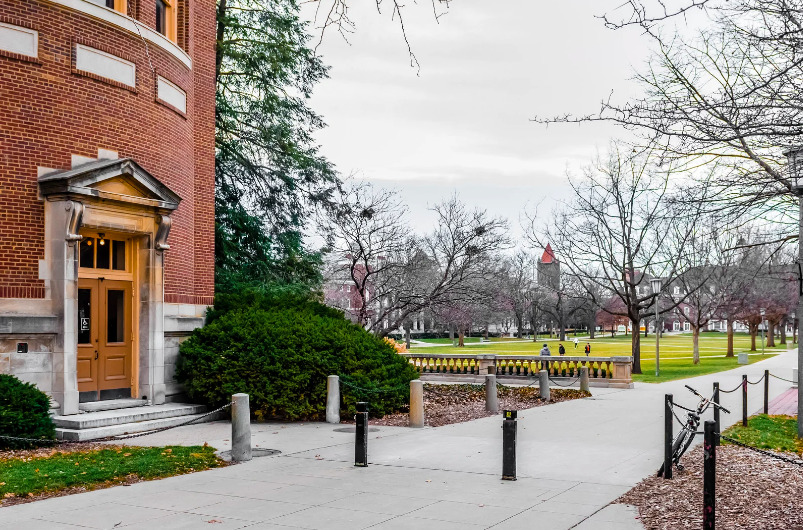

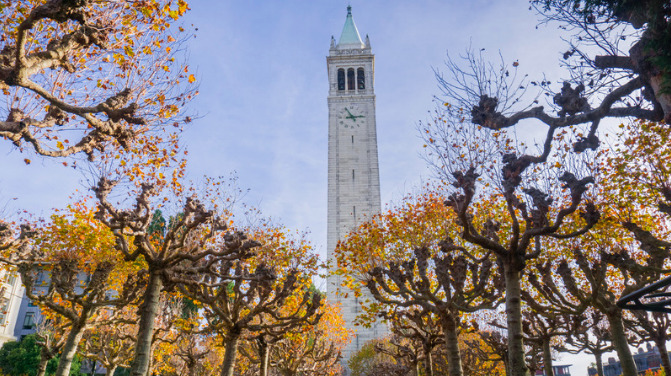
 The world of college admissions is constantly changing; therefore, it’s important to keep the best college admissions recourses close at hand if you are to navigate the admissions process with aplomb. Luckily, we’ve done the heavy lifting for you. We’ve assembled a virtual library of sorts filled with the resources we highly recommend for novices and old hands alike if the goal is to aggressively approach all things undergraduate admissions during the 2023-2024 admissions cycle. Research away!
The world of college admissions is constantly changing; therefore, it’s important to keep the best college admissions recourses close at hand if you are to navigate the admissions process with aplomb. Luckily, we’ve done the heavy lifting for you. We’ve assembled a virtual library of sorts filled with the resources we highly recommend for novices and old hands alike if the goal is to aggressively approach all things undergraduate admissions during the 2023-2024 admissions cycle. Research away!








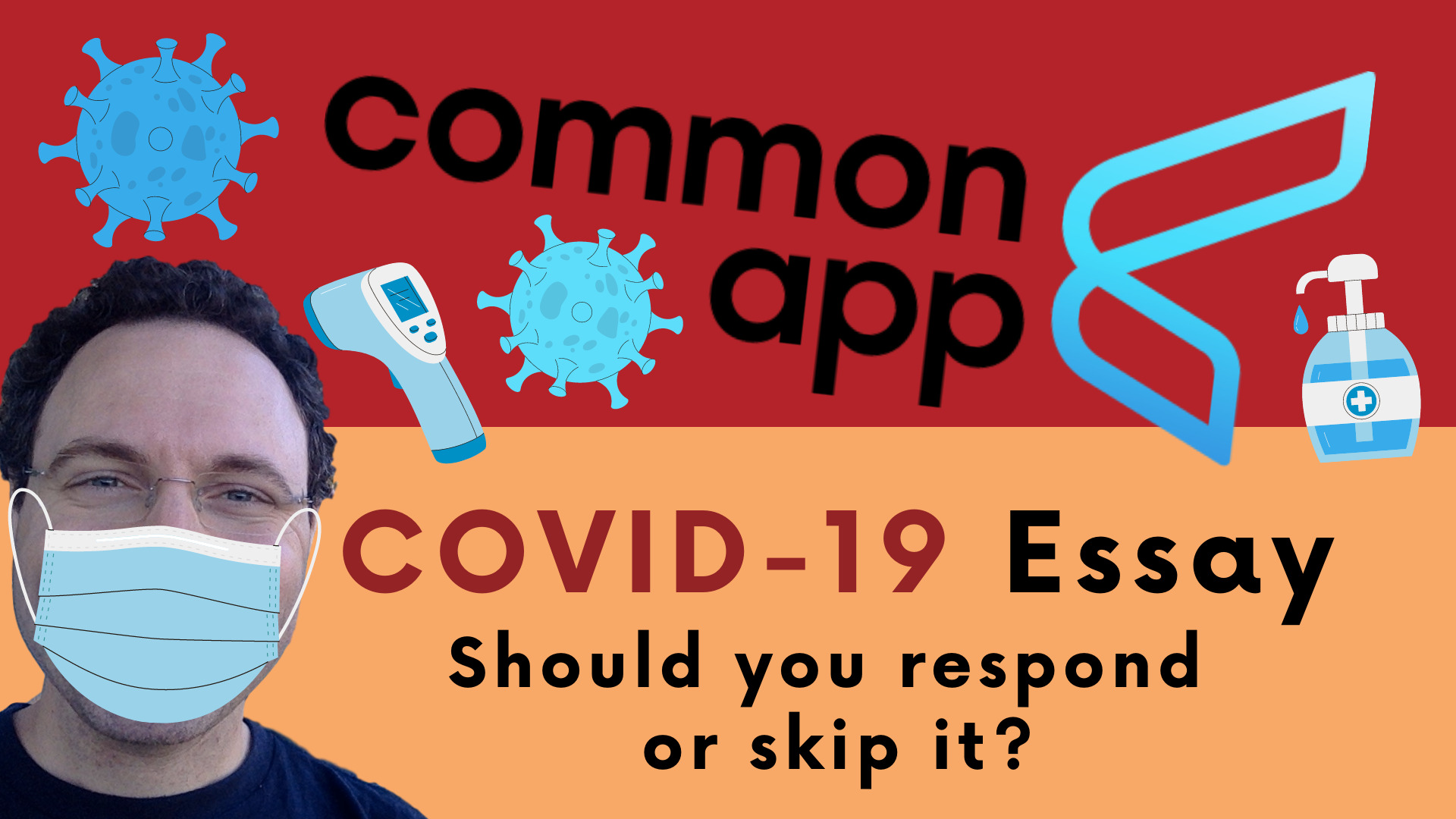 Only sixteen percent of students responded to the optional Common App COVID-19 essay during the 2021-2022 admissions cycle.
Only sixteen percent of students responded to the optional Common App COVID-19 essay during the 2021-2022 admissions cycle.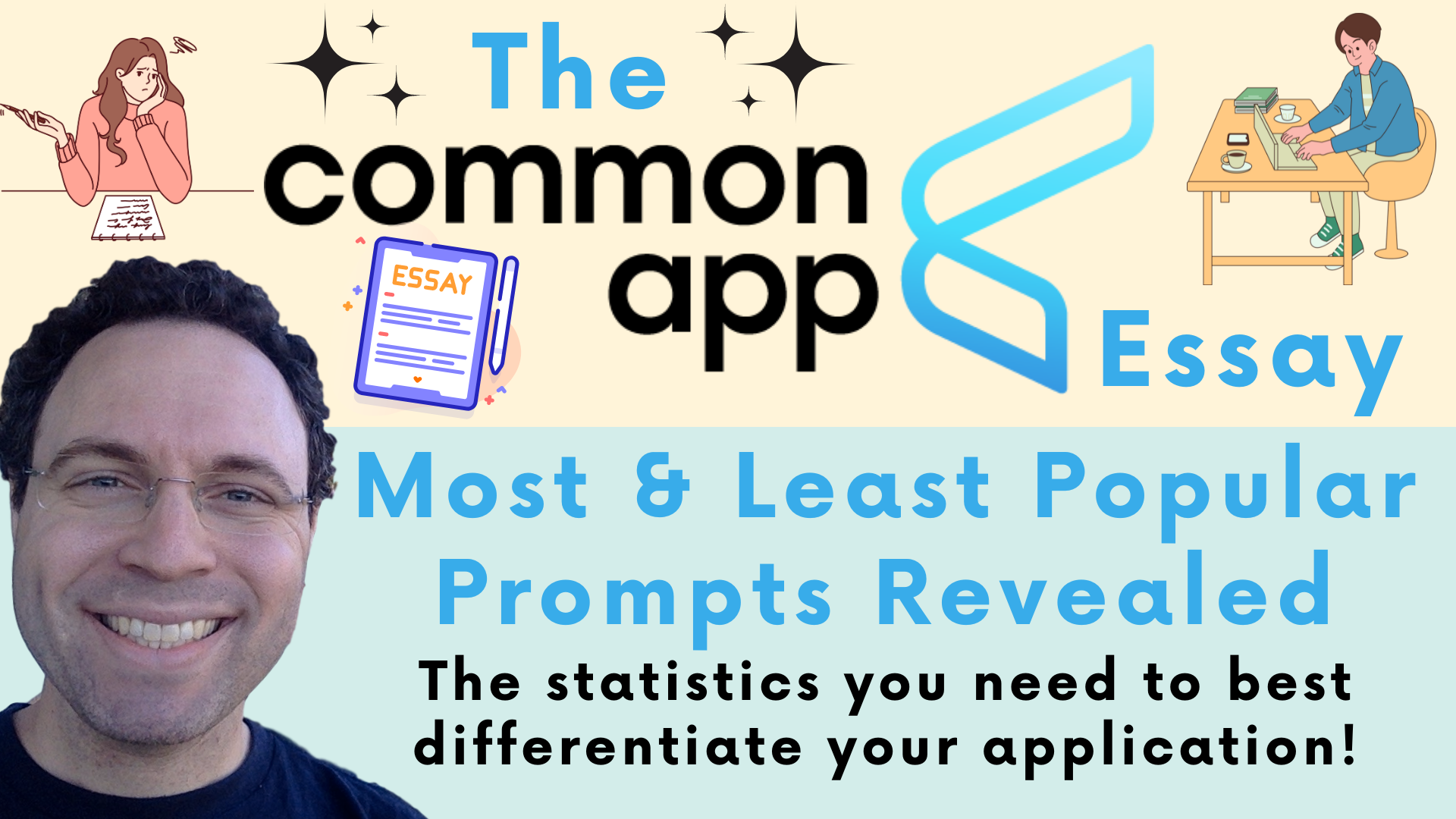 Success in the college admissions process often comes down to one word: differentiation. Therefore, it makes a lot of sense to think long and hard about what Common App essay prompt you respond to in order to share the story you want to share in a manner that frames your experience in the most memorable and unique manner possible. In the video below you’ll learn which Common App essay prompts are most popular and least popular right down to the exact percentage of applicants responding to each prompt, which will help you determine the prompt you want to respond to when completing your Common Application essay.
Success in the college admissions process often comes down to one word: differentiation. Therefore, it makes a lot of sense to think long and hard about what Common App essay prompt you respond to in order to share the story you want to share in a manner that frames your experience in the most memorable and unique manner possible. In the video below you’ll learn which Common App essay prompts are most popular and least popular right down to the exact percentage of applicants responding to each prompt, which will help you determine the prompt you want to respond to when completing your Common Application essay.